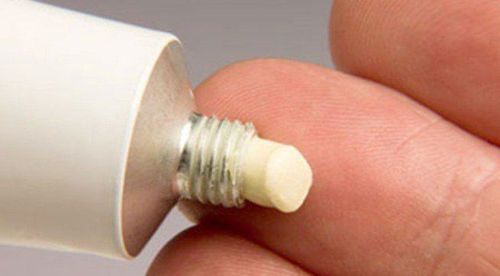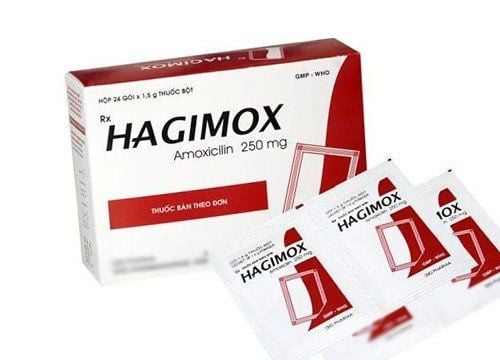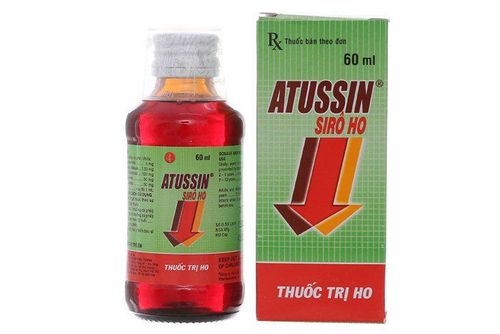This is an automatically translated article.
Clathepharm 250 is a drug belonging to the group of anti-parasitic, anti-viral/fungal and anti-infective drugs. The drug is manufactured at Thanh Hoa Pharmaceutical & Medical Equipment Joint Stock Company. The main ingredients in the drug are Amoxicillin 250mg and clavulanic acid 31.25mg. The drug is packaged in oral powder form, each pack contains 1.5g.
1. Effects and indications for using Clathepharm
Clathepharm 250 has active ingredients Amoxicillin 250mg and clavulanic acid 31.25mg. Clathepharm is used in the following specific cases:
Treatment of otitis media, tonsillitis, pharyngitis, laryngitis, bronchitis, sinusitis, urinary tract infection, skin infection, gonorrhea
2. Contraindications to Clathepharm 250
The following are cases where Clathepharm 250 should not be used for treatment:
Patients with a history of hypersensitivity or allergy to beta-lactam antibiotics (penicillins, cephalosporins). Hypersensitivity to active ingredients and excipients in drug formulations. Allergy to penicillin Cross-allergy to cephalosporins Infectious mononucleosis Lymphocytic Leukemia
3. How to use Clathepharm 250 effectively
3.1. How to use The drug comes in powder form for oral suspension:
Tap the bottle so that all the powder is drained to the bottom of the bottle. Then, pour cooled boiled water into the bottle to the mark marked on the body of the bottle and shake vigorously to dissolve the powder into the water. If it is found that the level of the reconstituted drug suspension has not reached the mark, add more water to the marked line. Shake well before use. 3.2. Dosage The maximum dose is usually 250 mg - 500 mg and taken every 8 hours. Children from 10 years old take a dose of 125 - 250mg and take it every 8 hours. Children < 20kg usual dose is 20-40mg/kg body weight/day. Children from 3 to 10 years old with otitis media can take a dose of 750mg / time and divided into 2 oral doses per day, lasting for 2 days. It is possible to use higher doses or take a single dose in short bursts in some other diseases as prescribed by the doctor. In case of periodontal abscess treatment, use 3g dose and repeat after 8 hours. Treatment of acute urinary tract infections uncomplicated using a dose of 3g and repeated after 10-12 hours of treatment. In the case of endocarditis prophylactic use a single dose of 3g and 1 hour before procedures such as tooth extraction. In case of severe or recurrent respiratory infections, the usual dose is 3g amoxicillin twice daily. 3.3. Overdose, missed dose and handling when taking Clathepharm Follow the dose prescribed by your doctor, pharmacist or see the dose of Clathepharm 250 listed on the package, the drug instruction sheet.
Overdose of Clathepharm 250: When there are manifestations of Clathepharm 250 overdose such as: abdominal pain, nausea/vomiting, drowsiness, diarrhea, skin rash, hyperactivity, deep coma, difficulty breathing,... Patients should immediately call the medical center at 115 or go to the nearest local medical facility for timely examination and treatment. In addition, patients should bring medical records, prescriptions and all bottles of medicine that have been and are being used so that doctors can quickly diagnose and plan the best treatment. In case of missed dose: The medicine can usually be taken 1-2 hours later than prescribed. However, there will be some drugs that have strict regulations on how long to take them. So, if you miss a dose, take it as soon as you remember. If the time is too far from the make up dose, skip the dose and take the next dose at the scheduled time. Follow the instructions given by your doctor or pharmacist.
4. Clathepharm 250 side effects on the body
When using Amoxicillin, there will be some unwanted side effects such as:
Diarrhea Stomach pain Vomiting Skin rash Itching Hives Hives Difficulty swallowing Wheezing Vaginal discharge Itching genitals Yellow skin, yellow eyes. The above is not a list of all possible side effects when taking Amoxicillin and Clavulanic acid. Usually, these side effects usually go away when the medication is stopped. In the process of using the drug, if you encounter any unusual symptoms, call your doctor for timely support.
5. Clathepharm drug interactions with other drugs
Clathepharm 250 drug interactions with other drugs are often quite complicated, due to the many effects with the ingredients in the drug. Therefore, patients should not arbitrarily use combinations of drugs together without the prescription of the doctor or medical person in charge.
The combination of Amoxicillin with Probenecid will reduce the renal tubular secretion of Amoxicillin. Also may increase blood concentration of Amoxicillin. Concomitant use of oral anticoagulants with Amoxicillin and Clavulanic acid may cause abnormal prolongation of Prothrombin time. In this case, the dose of oral anticoagulants should be adjusted. Combining Allopurinol with Amoxicillin significantly increases the incidence of rash in patients. Combined use with oral contraceptives may affect the intestinal microflora, reduce estrogen reabsorption and reduce the effectiveness of the combined estrogen/progesterone contraceptive. The active ingredient Amoxicillin in the drug can lead to a false-positive reaction in the urine glucose test. In addition, consideration should be given to the concomitant use of the drug with alcoholic or fermented beverages (wine, beer) and stimulants (tobacco). Because these agents can affect the ingredients in the medicine. Please read the instructions for use carefully and inform your doctor about the medicines you are using for timely advice.
6. Precautions when using Clathepharm
Here are the cases that need to be cautious when using Clathepharm for treatment.
Patients with hypersensitivity to Amoxicillin and Clavulanic acid or Penicillin group antibiotics. There is a history of cholestatic jaundice or liver dysfunction. The patient has severe kidney failure and is on hemodialysis. However, there are no reports on the safety of Amoxicillin in pregnant women. However, this subject should only use the drug when absolutely necessary and with the direction of specialized units. Amoxicillin is excreted in breast milk. Therefore, it is not recommended to use the drug while breastfeeding. Safety and efficacy have been reported in pediatric patients weighing ≥ 40 kg who can swallow tablets. Renal function should be monitored when using the drug in the elderly. Amoxicillin and Clavulanic acid should not be used in patients with creatinine clearance < 30 ml/min and on hemodialysis, in patients with liver failure. Patients with hepatic coma, peptic ulcer and myasthenia gravis, children under 15 years of age. Clathepharm 250 is a drug belonging to the group of anti-parasitic, anti-viral/fungal and anti-infective drugs. To ensure effective treatment and avoid unwanted side effects, patients need to take the drug exactly as directed by a doctor, professional pharmacist.
Follow Vinmec International General Hospital website to get more health, nutrition and beauty information to protect the health of yourself and your loved ones in your family.
Please dial HOTLINE for more information or register for an appointment HERE. Download MyVinmec app to make appointments faster and to manage your bookings easily.













